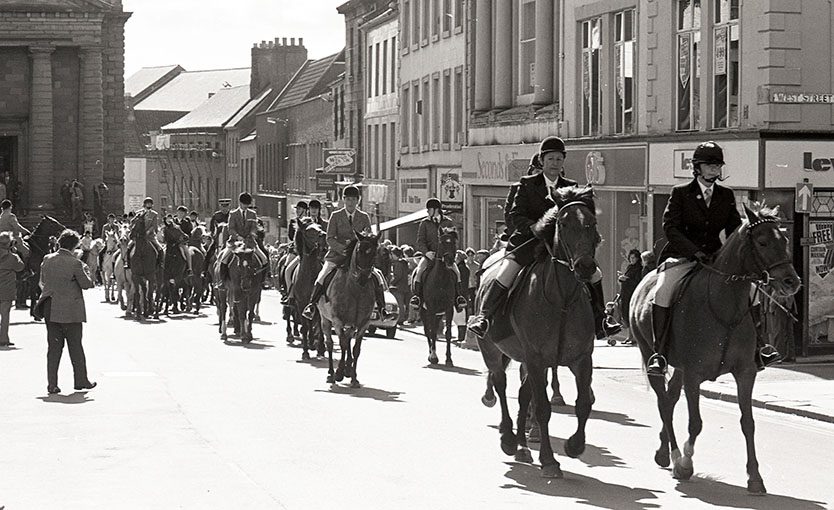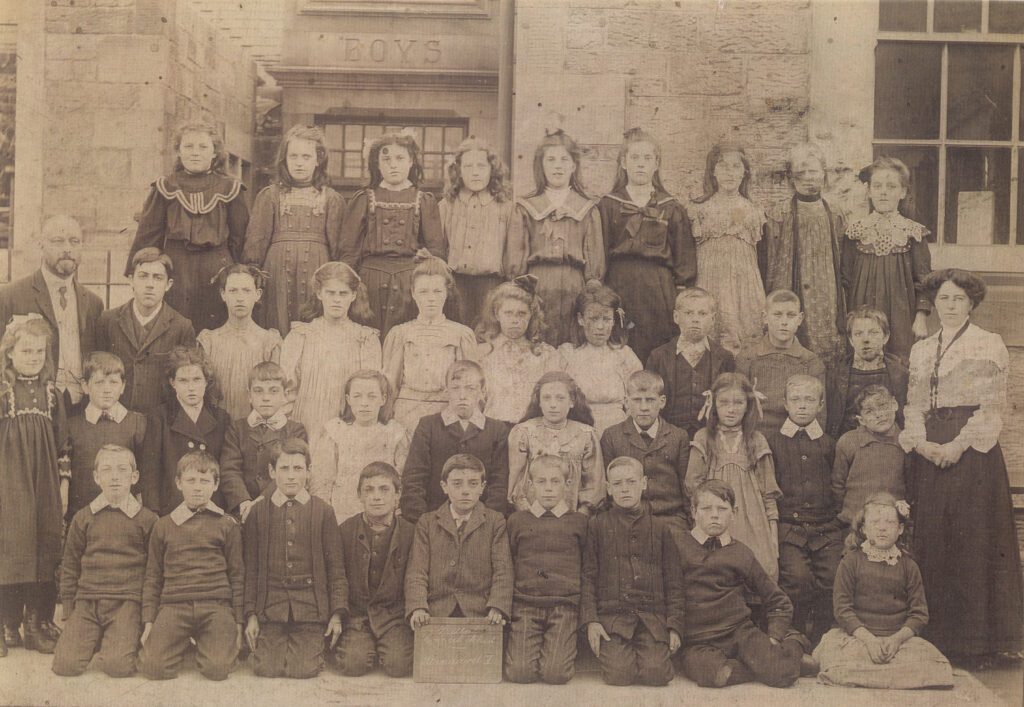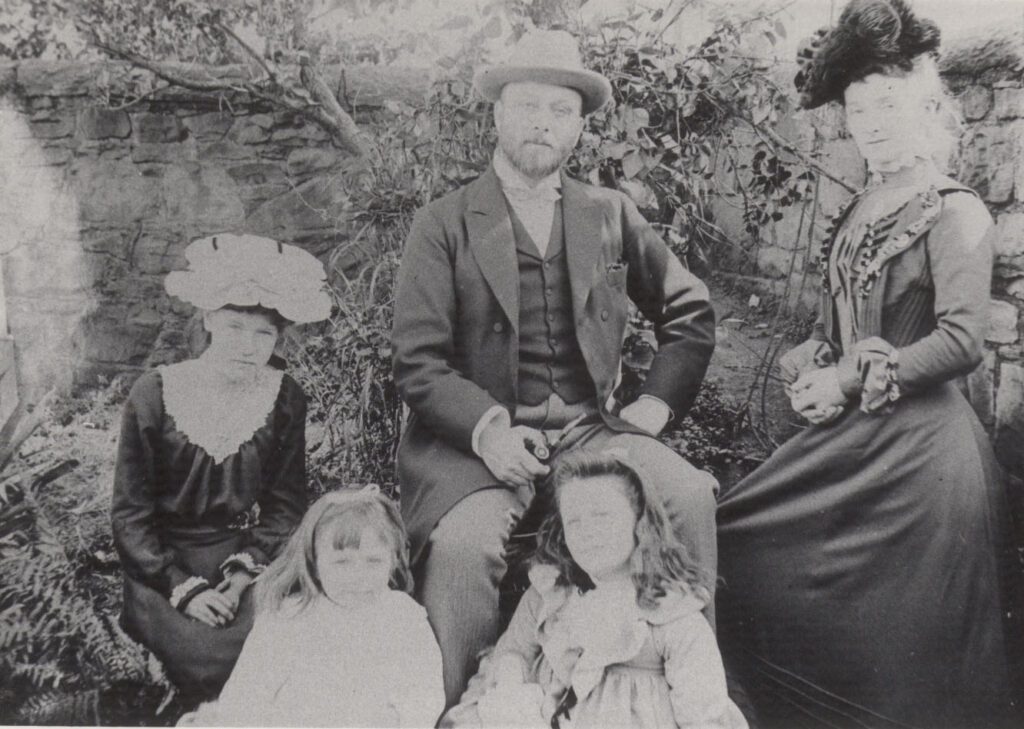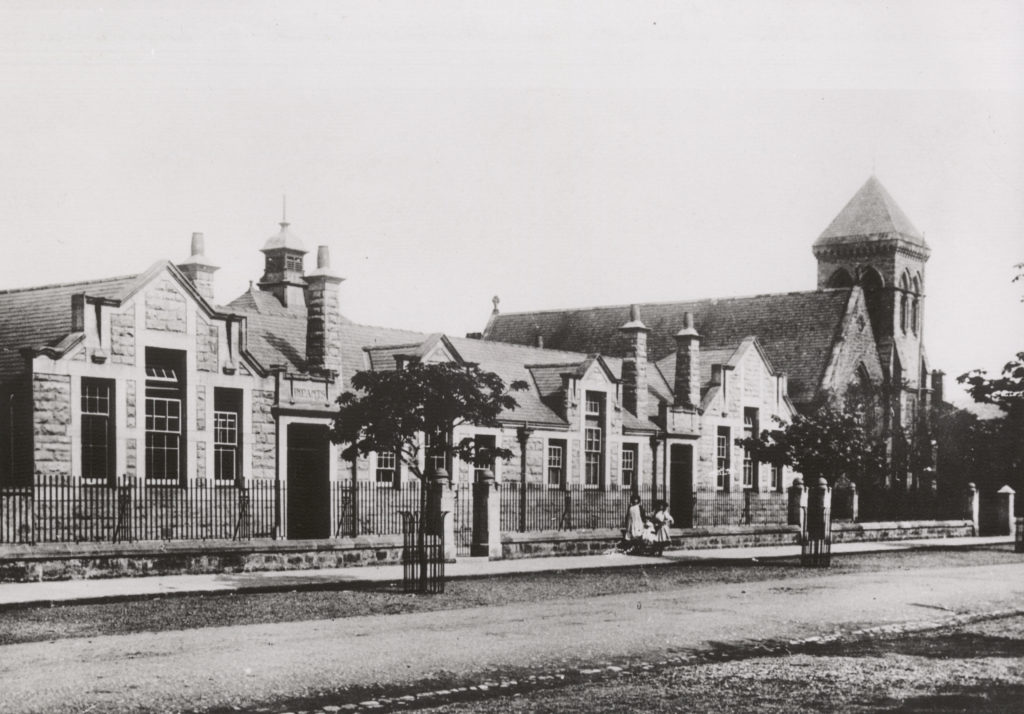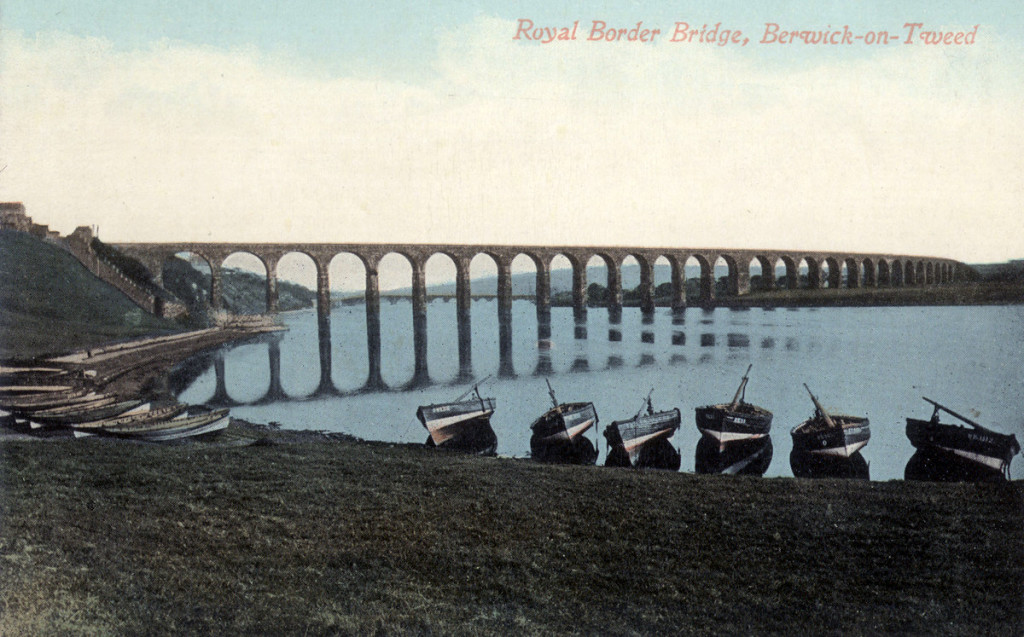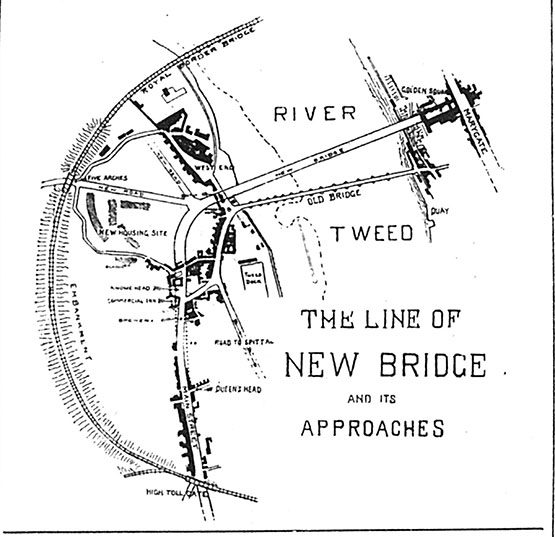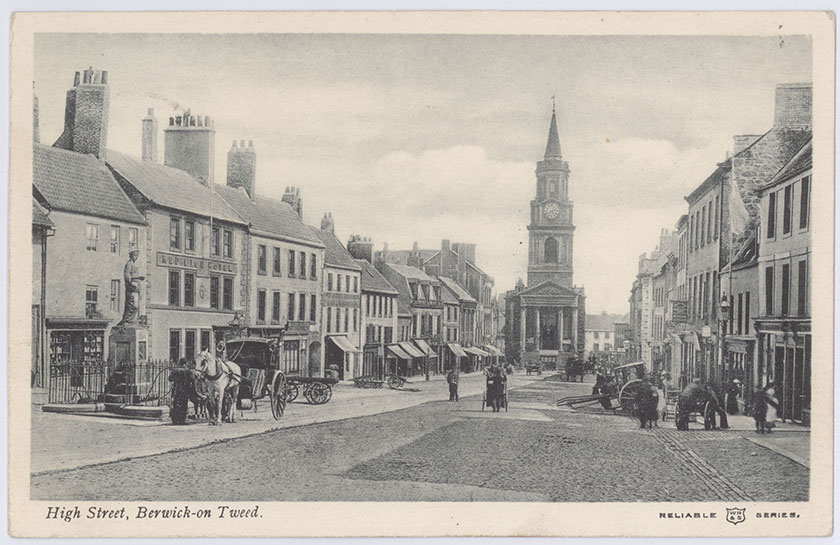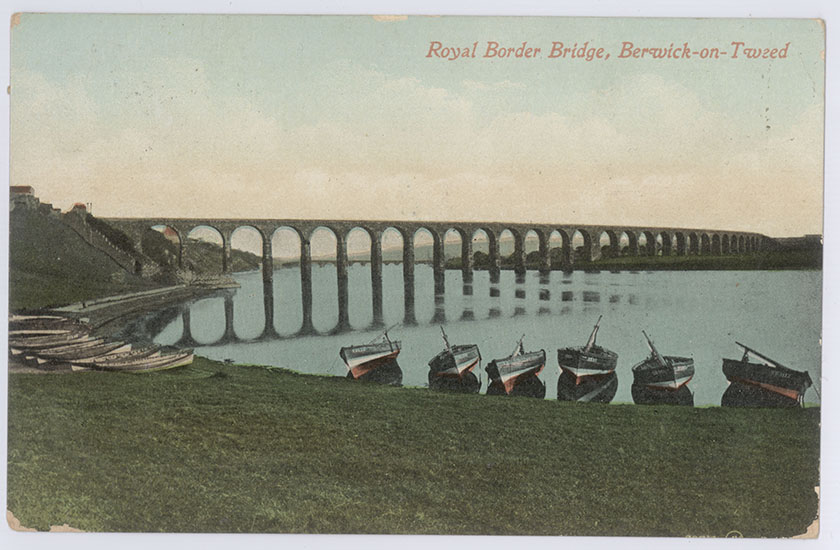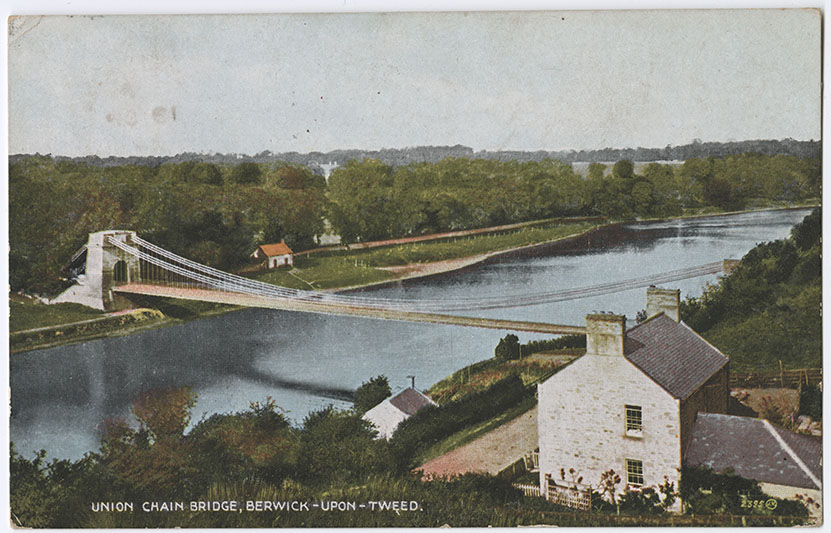BERWICK BOUNDS RIDING
Record Attendance
The annual Bounds riding of the Borough took lace from the Parade on Friday, at mid-day, when a large number of people assembled to see the commencement. Mr Moffat, junr., formerly of West Edge, acted as horseman for his seventeenth time and proceeded round the bounds on the usual course which cannot be followed by the cars. The procession taking the road was formed of twenty-four cars, a motorcycle and sidecar, pedestrians, and two pedal bicycles. The weather was quite genial and last year’s numbers, a record, were exceeded for 131 people partook of the refreshments provided at Whitadder Bridge (Corporation Arms), as compared with 122 last year, and the cars were two more than 1924.
The occupants of the vehicles were as follows:- The Mayor, Ald. T. Wilson, the Sheriff, Coun. H. Stuart, the Mayor’s Chaplain, the Rev. G. R. Russell, and the Town Clerk, Mr J. W. Porter; the Mayoress, Mrs Wilson, Mrs Souden, Mrs Redpath and Coun. Mrs Edminson; Ald. Boston, Mrs Boston, Miss Boston, and Mrs Bolus; Coun. And Mrs Lyal, Mrs Lyal, senr., Miss Lyal and Miss Nan Lyal; Couns. D. Redpath, W. Anderson, J. C. Campbell, T. Bolus and Davis; Coun. Liddle, Coun. Thorburn, Mr J. Gray, Coun. Morrison, and Mr T. Buglass; Mr Aird, Mrs Aird, Miss Aird, Mrs Simpson, Mrs Henderson and Mr T. Hogg; Counc. Dickinson, Mrs Dickinson, Mrs Ironside, and Mrs Hamilton; Mr Gibson, Mr D. Boyd, Mr seals, Supt. P. Halliday, and Mr R. Smeaton; Mr S. Brown, Mrs Thorburn, Mrs Williams, Mrs Wells; Coun. How and Mr George How and party; Mrs Carmichael and Mr J. W. Carmichael, Treasurer; Mrs Sloan, Mrs Elder, Miss McConville, and Mrs Fulton; Mr J. Huffam, Mr Davidson, Mrs Buglass, Mr Davison; Miss Edminson, Mrs Gibson and Miss Gibson; Coun. Dudgeon, Mrs Dudgeon, and Miss Ross; Mrs Evans, Mrs Mace and Mrs Purves; Mr and Mrs Hair, master Hair, master Boston; Mr Short, Mr Rowley, Messrs P. Boston and James Temple; Mr and Mrs Young, Mr and Mrs A. M. Garden.
AT MORDINGTON
In the course of the annual riding of the Bounds of Berwick on 1st May, by the Mayor and his Councillors, the old custom of presenting the Mordington school children with oranges was carried out. The long procession of cars halted at the School, and the Mayor handed over the oranges to the accompaniment of hearty cheers from the children. A few of the children had also the pleasure of being photographed along with the Mayor and Mayoress. The Rev. Hugh Fleming moved a hearty vote of thanks to the Mayor for his thoughtfulness in keeping up the old custom and for his kindness in providing the oranges.
MR BORTHWICK’S LAST DAY IN SPITTAL SCHOOL
Presentation From Scholars And Staff
On Thursday, April 30th, Mr T. W. G. Borthwick completed his engagement as headmaster of Spittal Council School and bade farewell to his scholars and staff. There were also present three of Mr Borthwick’s former assistants – Mrs Johnston (head teacher of Duddo School), Miss Johnson (now retired) and Mrs McCallum, his first pupil teacher, and Mrs R. Thompson, wife of the Assistant Master.
At the outset Mr R. Thompson, Assistant master, addressed the scholars, and in a few well-chosen words expressed the sorrow of scholars and teachers in parting with their Headmaster, who had not only been an inspiration in his teaching, but also a good friend. He reminded the scholars of some of the mottoes which Mr Borthwick had so often kept before them, from amongst which he chose two – “The Best I can,” to keep before them while at their daily lessons and their work in after life; and “Play the Game,” with its wide application to all activities whether in the playing field, in the workshop, or in every other sphere in contact with their fellows. After drawing the analogy between the captain leaving the vessel of which he might well be proud, he concluded by reading the inscription on the bureau, the gift to Mr Borthwick from the scholars and staff. This was: – “Presented to Mr T. W. G. BORTHWICK by the Staff and Scholars of Spittal Council School in recognition of faithful service as Headmaster for 43 years. April 30th, 1925.
Mrs Johnston (Miss Mary Noble), who was a scholar, pupil teacher and certificated teacher under Mr Borthwick, spoke of the great esteem in which he was held. He was not only their headmaster; he was also their friend and was always ready to continue their education. School, under Mr Borthwick, was always more of a family circle than merely a conventional combination of headmaster and staff, and he always showed great consideration for others. She would never forget the valuable lessons she learned from Mr Borthwick.
MR BORTHWICK’S REPLY
Mr Borthwick, in relying, said: I must first of all thank Mr Thompson for the kind things he has said about me, and I also thank Tom White, the scholars, and the teachers for presenting me with this handsome bureau. I cannot think of anything which would have been more useful. Every time I open the bureau and sit down to write with the superb Swan fountain pen you have given me, I shall think of you all, remembering especially this afternoon and our most touching expression of affectionate regard. How proud, too, shall I be when I show the bureau to my friends and watch them read the inscription on it. I cannot say I feel happy this afternoon; indeed, for several days I have felt quite sad at heart at the thought that my work among you is at an end. We have been so happy together. Never again shall I have the pleasure of meeting you every morning to go through an interesting day’s routine of delightful lessons. When you go home this afternoon I would like you to tell your parents how deeply I regret giving up my work; and also tell them that I shall always remember how loyal they have been to me. When I happen to meet you I hope you will continue to give me your usual pleasant smile of recognition.
The children then sang the master’s favourite hymn, beginning “New every morning id the love our wakening and uprising prove.” Though some parts of this hymn were rather difficult for the children to understand, he advised them all to learn it by heart, because as the grew older and pondered over the meaning of the various verses they would find great help and solace if they tried to carry out every day the teaching of this hymn.
PRESENTATION TO MRS BORTHWICK
Mr Thompson then called on Annie Renton, one of the senior girls, to present a handsome leather hand-bag to Mrs Borthwick.
Mr Borthwick, in replying for his wife, said there was no one more loyal to the children of Spittal than Mrs Borthwick. It was no use going home to her and making a complaint about them. She would never admit that it was their fault. To Annie Renton, the scholars and the staff she tendered her heartiest thanks.
FAREWELL TO SCHOLARS
The 300 children, beginning with the youngest, then filed past, and Mr Borthwick shook hands with each in turn bidding them good-bye. Many of the girls, and not a few of the boys, were in tears, and Mr Borthwick himself found it very difficult to conceal his emotions.
Mr and Mrs Borthwick afterwards entertained the staff and visitors to tea.
FAREWELL TO STAFF
In saying farewell to his staff, Mr Borthwick expressed himself as follows: – This is my last session as your headmaster, but before I go I would like to thank you al for your loyal and willing co-operation at all times. No one could have had more agreeable colleagues. Of our united success I need say very little. You have all seen His Majesty’s Inspectors’ reports from time to time and can share with me the satisfaction of knowing that our work has on every occasion been appraised at a high value. We have been a very happy family, for I cannot recall a single occasion when there has been any unpleasantness. I am sorry to say good-bye, but it is a great satisfaction to be assured that I part from you knowing that, in days to come when we look back on the years we have spent together in this school, it will be a fragrant and delightful memory.
The members of the staff present were Mr Robert Thompson, Mrs Clements, Miss Lee, Miss Brewis, Miss Harris, Miss Davidson, and Mr John Rutter. Miss Rea, who is absent on sick leave, expressed regret at not being present.


